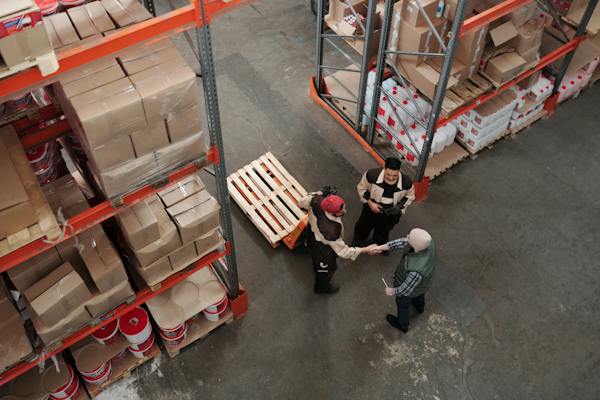Recent consumer preferences emphasise the necessity of a dynamic and versatile logistics framework. It’s crucial to swiftly and seamlessly engage with customers or potential clients across all communication channels to foster trust and provide transparency.
According to a McKinsey study, omni-channel distribution is projected to expand by 7% annually, climbing from $600 billion in 2019 to $840 billion by 2025. Adopting an omni-channel logistics approach integrates marketing, sales, and logistics functions, establishing a robust groundwork for efficient order fulfilment. Enterprises must, therefore, capitalise on this strategy to bolster their market presence effectively.
What is an Omni-channel Approach?
The omni-channel logistics approach is a modern retail strategy that integrates multiple sales channels to provide a seamless shopping experience for both customers and businesses. With the rise of technology, many businesses are transitioning from single or multi-channel retail to omni-channel retail.
This approach centralises data, allowing businesses to sell products through various channels such as brick-and-mortar stores, websites, and third party logistics vendors. For this strategy to work effectively, it is essential to have a robust and integrated logistics system in place. This ensures that orders can be fulfilled efficiently regardless of the sales channel, enhancing customer satisfaction and business success.
Omni-channel Vs Multichannel
The table below highlights the key distinctions between Multi-Channel and Omni-Channel approaches regarding channels involved, customer experience, data integration, fulfilment, and communication.
| Aspect | Multi-Channel Approach | Omni-Channel Approach |
| Channels Involved | Operates through separate, independent channels. | Integrates multiple channels, offering a seamless experience. |
| Customer Experience | Each channel operates independently, providing limited consistency. | Provides a unified and consistent experience across all channels. |
| Data Integration | Limited integration of customer data across channels. | Centralised data enables a holistic view of customer interactions. |
| Fulfilment | Each channel may have its own fulfilment process. | Unified fulfilment process ensures consistency regardless of the channel. |
| Communication | Communication between channels may be disjointed. | Channels communicate and synchronise effectively. |
Varuna Group’s Integrated Logistics Solutions
The significant advantages that Varuna Group can offer your business through the implementation of an omni-channel approach are mentioned below.
- Flexible Warehousing Facility
In the logistics industry, flexibility in warehousing is essential for meeting the evolving needs of omni-channel businesses. Varuna Group’s Multi-Use Facilities (MUFs) offer adaptable solutions in terms of size, services, and location, enabling businesses to respond to customer demands swiftly. Whether it’s adjusting storage capacity or reconfiguring layouts, these facilities provide the agility required to optimise inventory management and streamline operations in the face of fluctuating market demands.
- In-transit Visibility of Consignment
Varuna Group distinguishes itself by leveraging advanced technology to provide customers with comprehensive visibility into the movement of their consignments. Real-time updates on the status and location of shipments empower businesses to make informed decisions, enhance supply chain efficiency, and ultimately deliver a superior customer experience. By offering transparency throughout the journey of each consignment, Varuna Group enables clients to proactively address potential disruptions and ensure timely delivery, thereby strengthening their competitive edge in the logistics landscape.
- Predictable Order Fulfilment Process
In the quest to meet the increasingly demanding expectations of consumers for rapid order fulfilment, the predictability and efficiency of the logistics process are paramount. Varuna Group strategically positions its warehouses to facilitate quick delivery, allowing businesses to fulfil their commitments precisely. By optimising the placement of facilities, Varuna Group enhances the speed and reliability of order fulfilment, enabling clients to uphold service level agreements and maintain customer satisfaction.
Bottom Line
Achieving a perfect balance between automation and personalisation is essential in omni-channel logistics. While automation streamlines processes, enhances efficiency and reduces costs, personalisation adds a human touch, fostering customer engagement, loyalty, and satisfaction.
Varuna Group’s commitment to striking this delicate balance ensures that businesses can leverage the benefits of automation while maintaining personalised interactions with their customers throughout the logistics journey. By integrating cutting-edge technology with a customer-centric approach, top logistics companies in India empower businesses to thrive in the dynamic landscape of omni-channel logistics, driving growth and success in the digital age.
